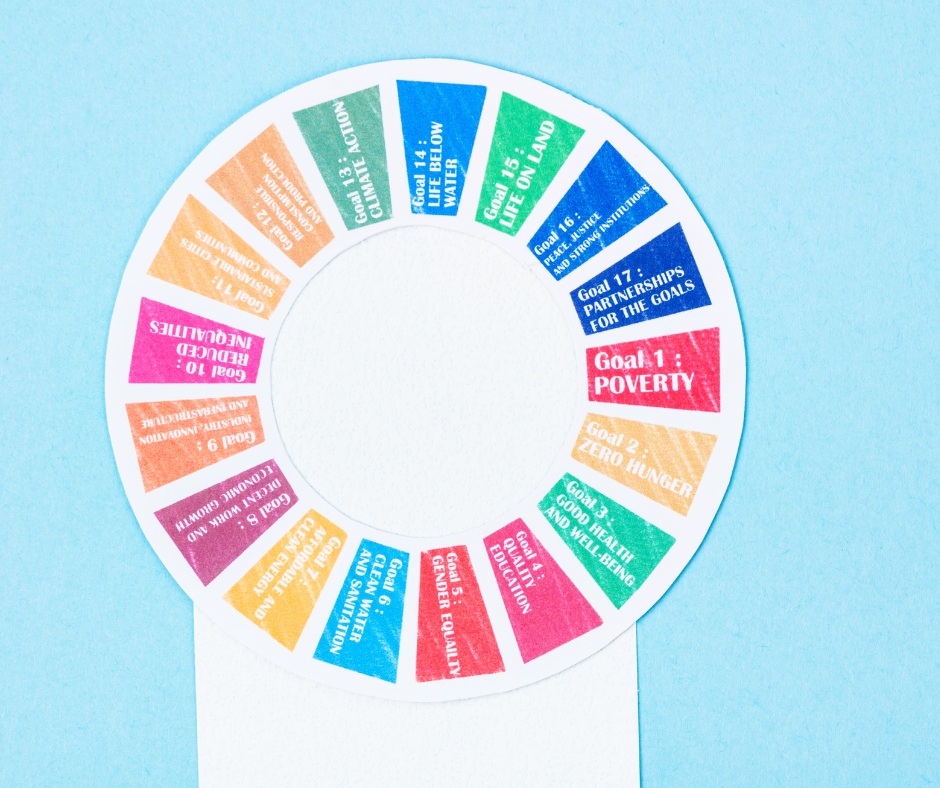Widowhood often comes with profound grief, but for many women around the world, it also brings social isolation and economic hardship. Yet, in the face of these challenges, widows are rising as powerful change-makers. Empowering widows to take on leadership roles is not just a matter of justice; it’s a catalyst for global transformation. The Urgent Need for Change Widows are among the most marginalized groups in many societies, often facing discrimination and exclusion. Globally, millions of widows are left without support, struggling to provide for their families. But when these women are given the tools to lead, they can break the cycle of poverty and marginalization—not just for themselves, but for their entire communities. The urgency of this issue cannot be overstated. Every day that passes without action is another day that widows and their families remain trapped in a cycle of poverty and exclusion. But when we empower widows to be leaders, we are not just changing their lives—we are changing the world. Emotional Resilience Empowering widows is about more than just economic support—it’s about emotional resilience. Leadership gives these women a sense of purpose and a platform to advocate for change. It helps them heal from their loss and transform their grief into strength. Widows who become leaders often speak of a profound emotional shift, as they move from being seen as victims to being recognized as powerful agents of change. Actionable Steps To truly empower widows as leaders, we need to break down the barriers that hold them back. This means advocating for policy changes that support widow-led initiatives, providing access to education and training, and fostering inclusive communities that value the contributions of widows. The time to act is now. We cannot afford to wait any longer. By empowering widows to be leaders, we can create a world where every woman, regardless of her circumstances, has the opportunity to thrive. Let’s join together to break the barriers and unleash the potential of widows as change-makers.
Women, Work Abroad: Opportunity and Risk of a Lifetime
In today’s interconnected world, the opportunity for women to work abroad presents itself as both a gateway to personal growth and a challenge that demands careful consideration. For many, this journey signifies more than just a career move; it’s a transformative experience that shapes perspectives, builds resilience, and opens doors to new cultures and opportunities. However, beneath the allure of adventure lies a landscape fraught with uncertainties and risks that can profoundly impact one’s life and well-being. Embracing Opportunity: The Promise of Working Abroad Working abroad offers women a chance to break through societal norms and professional barriers, fostering independence and self-reliance. It’s a chance to immerse oneself in diverse cultures, languages, and work environments, broadening horizons and nurturing a global mindset. The exposure to different ways of thinking and operating can fuel innovation and creativity, making it a fertile ground for professional development. Moreover, the financial rewards can be substantial, often providing higher salaries and better career advancement opportunities than those available domestically. This economic empowerment can empower women to support themselves and their families, breaking cycles of dependence and inequality. The Flip Side: Recognizing the Risks However, the path of working abroad isn’t without its challenges and risks, especially for women. Cultural differences, language barriers, and unfamiliar legal frameworks can create significant hurdles. Safety concerns, ranging from personal security to health risks, can loom large, particularly in regions with political instability or social unrest. One of the most poignant risks involves the emotional toll of being away from home and loved ones. Loneliness and isolation can affect mental health, while navigating new social dynamics and building support networks abroad can be daunting tasks. Actionable Insights: Navigating the Journey Safely and Successfully 1. Research Extensively: Before embarking on a job abroad, thoroughly research the destination country. Understand its cultural norms, legal protections for workers, healthcare system, and safety records. 2. Network Strategically: Build connections with expatriate communities, local professionals, and mentors who can provide guidance and support. Networking can not only enhance career prospects but also offer invaluable insights into local life. 3. Safety First: Prioritize personal safety at all times. Familiarize yourself with emergency procedures, local laws, and safe transportation options. Trust your instincts and seek assistance if you feel unsafe. 4. Emotional Preparedness: Mentally prepare for the emotional challenges of living abroad. Stay connected with loved ones through regular communication and seek out social activities that can help build a sense of belonging. 5. Financial Planning: Manage finances prudently to ensure stability during the transition and beyond. Understand tax implications, currency exchange rates, and any potential financial benefits or risks associated with working abroad. Urgency and Conclusion: Seizing the Moment The decision to work abroad as a woman is both empowering and daunting. It demands courage, resilience, and a proactive approach to mitigate risks while embracing opportunities. By equipping oneself with knowledge, support networks, and emotional readiness, women can navigate this transformative journey successfully. In conclusion, while the allure of working abroad beckons with promises of growth and adventure, it’s essential to approach this opportunity with eyes wide open. With careful planning, cultural sensitivity, and a commitment to personal safety and well-being, women can turn this experience into a defining chapter of their lives—one filled with achievement, learning, and lasting memories. As the voice of widows, we advocate for empowering women to seize opportunities while staying grounded in their values and safety. Let us embrace the world with courage and compassion, ensuring that every step we take abroad is a step towards a brighter future.
Why Women Healthcare Volunteers Are Undervalued: Unveiling Their Essential Role
In the bustling world of healthcare, where every moment counts and every life saved is celebrated, there exists a quiet army of volunteers who often go unnoticed and underappreciated: women. These dedicated individuals sacrifice their time, energy, and sometimes even their emotional well-being to support healthcare initiatives worldwide. Yet, their contributions are frequently undervalued, overshadowed by the larger mechanisms of medical care. Today, we shed light on why women healthcare volunteers are so crucial yet remain overlooked. The Unseen Heroes Imagine a bustling hospital ward, where doctors and nurses tirelessly attend to patients. Amidst this chaos, volunteers—often women—work tirelessly behind the scenes. They offer comfort to grieving families, guide confused patients through labyrinthine corridors, and provide invaluable support to healthcare professionals. These volunteers are the unseen heroes who bridge gaps in care, offering human connection in an increasingly mechanized healthcare system. Actionable Insights Advocacy for Recognition: It’s time to advocate for recognition of women healthcare volunteers. They deserve acknowledgment not just for their time but for their emotional investment in patient care. Training and Support: Provide comprehensive training and emotional support programs for volunteers. Recognizing their emotional labor is crucial in retaining dedicated volunteers. Policy Change: Advocate for policies that ensure fair treatment and recognition of volunteers within healthcare systems. Their contributions should be formally recognized and appreciated. The Emotional Toll Volunteering in healthcare settings can take a significant emotional toll. Women volunteers often find themselves comforting patients in distress, witnessing heartbreaking situations, and grappling with their own emotions in the process. Despite this, their efforts are frequently sidelined, their emotional labor overlooked. Urgent Call to Action The urgency lies in recognizing and valuing the contributions of women healthcare volunteers. They are not just a supporting cast but integral members of the healthcare ecosystem. Their efforts save time, improve patient outcomes, and provide much-needed comfort in times of crisis. Final Thoughts As we reflect on the vital role women healthcare volunteers play, let us remember their unwavering dedication and resilience. It’s time to elevate their voices, recognize their contributions, and ensure they receive the support and appreciation they deserve. By doing so, we not only honor their commitment but also strengthen our healthcare systems with compassion and empathy. In conclusion, the undervaluation of women healthcare volunteers is a systemic issue that requires collective action. Let us amplify the voice of widows who volunteer, ensuring their impact is felt and their efforts celebrated. Together, we can create a healthcare environment where every volunteer—especially women—is recognized as a pillar of strength and compassion.
Empowering Women with Disabilities: Breaking Barriers in the Workforce
In today’s rapidly evolving world, the journey towards workplace diversity and inclusivity has taken significant strides. However, amidst these advancements, there remains a group whose voices often go unheard – women with disabilities. These remarkable individuals not only navigate the challenges of everyday life but also strive to carve out meaningful careers despite societal barriers. Their stories of resilience, determination, and triumph deserve to be celebrated and shared. The Current Landscape Women with disabilities face a unique set of challenges when entering the workforce. From physical accessibility issues to prejudiced attitudes and limited job opportunities, the hurdles can seem insurmountable. According to recent statistics, the employment rate for disabled women lags significantly behind that of their non-disabled peers, highlighting the urgent need for change. Breaking Down Barriers However, the narrative is gradually shifting. Organizations worldwide are recognizing the immense value that individuals with disabilities bring to the table. They are not just advocating for diversity but actively implementing policies and practices that foster an inclusive environment. Initiatives such as accessible workplace accommodations, flexible work arrangements, and anti-discrimination policies are paving the way for greater opportunities. The Power of Representation One of the most powerful catalysts for change is representation. When women with disabilities see others like them succeeding in various fields, it ignites a sense of possibility and ambition. Their visibility not only challenges stereotypes but also inspires a new generation to pursue their dreams unapologetically. Actionable Steps Towards Inclusivity If you’re an employer or someone looking to support this cause, here are actionable steps you can take: Educate and Sensitize: Implement training programs to educate staff about disability etiquette, inclusive language, and the importance of accommodating diverse needs. Accessibility Matters: Conduct accessibility audits to ensure your workplace is physically and digitally accessible to everyone. Invest in assistive technologies and make necessary adjustments to facilities. Flexible Work Options: Offer flexible work schedules or remote work opportunities that can accommodate varying needs and abilities. Equal Opportunity Policies: Develop and enforce policies that promote equal opportunity and prevent discrimination based on disability. Foster a culture where differences are celebrated. Partner with Disability Organizations: Collaborate with organizations that specialize in supporting individuals with disabilities. This can help you tap into a pool of talented candidates and gain insights into best practices. The Urgency of Now The urgency to empower women with disabilities in the workforce cannot be overstated. Every day that passes without inclusive practices is a missed opportunity for innovation and progress. By dismantling barriers and embracing diversity, we not only enrich our workplaces but also contribute to a more equitable society. Embracing Emotional Impact Behind every statistic lies a human story of courage and resilience. Imagine the joy and pride of a woman with a disability securing her dream job, defying societal expectations, and proving her capabilities. These stories evoke empathy and compel us to take action, ensuring that every individual, regardless of ability, has an equal chance to thrive. Conclusion As we move forward in the pursuit of workplace equality, let us amplify the voices of women with disabilities. Let us champion their rights, celebrate their achievements, and create a future where inclusion is not just a goal but a reality. Together, we can build a workforce that reflects the diversity and strength of our society, where every woman, regardless of her abilities, can shine brightly. In the journey towards empowerment, there is no room for delay. The time to act is now.
Widows: Self-Empowerment Among Widows By Voice of Widows
In the silent corners of our society, where whispers of loss linger, there exists a profound strength often overlooked: the resilience and empowerment of widows. Today, we embark on a journey to illuminate the path towards self-empowerment, urging every widow to embrace her strength, reclaim her voice, and redefine her future. The Silent Struggle The loss of a spouse is a devastating experience. It is not just the absence of a partner, but a seismic shift that leaves a void filled with grief, uncertainty, and a plethora of challenges. Widows face emotional turmoil, financial instability, and societal expectations that often render them invisible. Yet, amid these struggles lies an untapped reservoir of resilience and potential. Embracing the Pain Acknowledging and embracing the pain is the first step towards healing. It’s essential to understand that grief is a personal journey, and there is no ‘right’ way to navigate it. Allow yourself to feel, to mourn, and to express your emotions without fear of judgment. Cry when you need to, speak about your loss, and seek support from those who understand your pain. Building a Support Network No one should have to face grief alone. Building a robust support network is crucial. Connect with other widows who share similar experiences. Organizations like Voice of Widows provide a platform for shared stories, mutual support, and collective strength. Engage in support groups, both online and offline, where you can find understanding, empathy, and encouragement. Financial Independence: Reclaiming Control Financial instability is a common concern for many widows. It’s vital to take proactive steps towards financial independence. Start by gaining a clear understanding of your financial situation. Seek advice from financial advisors who can help you manage your finances, plan for the future, and make informed decisions. Consider upskilling or reskilling yourself to enhance your employability. There are numerous online courses and community programs aimed at empowering women with the knowledge and skills needed to re-enter the workforce or start a new career. Discovering a New Identity The loss of a spouse often leads to an identity crisis. Who are you without your partner? It’s a difficult question, but one that can lead to profound self-discovery. Take this time to explore your interests, passions, and dreams. What have you always wanted to do but never had the chance? Whether it’s pursuing a hobby, traveling, or starting a new venture, this is your opportunity to redefine your identity on your terms. Advocacy and Activism Empowerment also comes from advocating for yourself and others. Raise your voice against societal norms that seek to marginalize widows. Engage in activism to bring about policy changes that support widows’ rights and welfare. Your story, your voice, and your actions can inspire change and empower countless others in similar situations. Health and Well-being Taking care of your physical and mental health is paramount. Grief can take a toll on your well-being, leading to depression, anxiety, and other health issues. Prioritize self-care by maintaining a healthy diet, exercising regularly, and seeking professional help if needed. Practices like meditation and mindfulness can also help in managing stress and fostering a sense of peace. Inspirational Stories: Lighting the Path Throughout history, widows have risen from the ashes of their loss to create impactful legacies. From Eleanor Roosevelt, who became a formidable political figure after the death of Franklin D. Roosevelt, to Mary Todd Lincoln, who advocated for the rights of veterans and orphans, widows have shown incredible strength and resilience. Modern-day widows continue to inspire. Consider the story of Sheryl Sandberg, who, after the sudden death of her husband, became a vocal advocate for women’s empowerment and resilience through her book “Option B.” These stories serve as beacons of hope, illustrating that there is life, purpose, and fulfillment beyond loss. Urgency: The Time is Now Empowerment is not a distant goal but an immediate necessity. Each day spent in despair is a day lost in reclaiming your life. Take action now. Reach out for support, seek knowledge, and embrace your journey towards self-empowerment. Your future is not defined by your loss but by the strength you muster in the face of it. Call to Action Voice of Widows is here to support you every step of the way. Join our community, share your story, and become part of a movement dedicated to transforming the lives of widows worldwide. Together, we can create a world where widows are seen, heard, and empowered to live their fullest lives. Remember, empowerment begins with you. Take the first step today, and let your journey inspire others to follow.
Empower Every Woman: The Voice of Widows
In every corner of the globe, women are the backbone of our communities. They nurture, they lead, they inspire. Yet, among these incredible women, there exists a group often overlooked and marginalized: widows. It’s time to empower every woman and ensure the voices of widows are heard, respected, and uplifted. This is not just a call to action; it’s an urgent plea for justice, equity, and human dignity. The Silent Struggle of Widows Imagine losing your partner, your confidant, your source of emotional and often financial support. Now, imagine facing this profound loss while being shunned by society, denied your rights, and struggling to provide for your children. This is the reality for millions of widows worldwide. According to the United Nations, there are an estimated 258 million widows globally, and nearly one in ten lives in extreme poverty. Widows often face unique challenges: Economic Hardship: Many widows are left without financial support and find it difficult to secure employment due to societal biases and lack of opportunities. Social Stigma: In many cultures, widows are stigmatized and ostracized, deemed unlucky or cursed. Legal Discrimination: Widows often encounter legal obstacles in inheriting property or accessing their deceased husband’s assets. Emotional Trauma: The grief of losing a spouse is compounded by isolation and discrimination. Why Empowering Widows Matters Empowering widows is not just about addressing a humanitarian need; it’s about unlocking the potential of half our society. When widows are empowered: Families Thrive: Empowered widows can provide better for their children, ensuring they receive education and opportunities. Communities Prosper: Economically empowered women contribute to local economies, driving growth and development. Social Equity: Supporting widows challenges discriminatory norms and promotes gender equality. How You Can Make a Difference Advocate for Policy Changes Support Legislation: Advocate for laws that protect widows’ rights to inheritance, property, and social security. Raise Awareness: Use your voice to highlight the issues widows face and the need for legislative reforms. Support Widows’ Economic Empowerment Donate: Contribute to organizations that provide financial support and vocational training to widows. Employ Widows: If you own a business, consider creating job opportunities for widows. Microfinance and Loans: Support microfinance initiatives that provide widows with the capital to start their own businesses. Challenge Social Norms Educate Communities: Work with local leaders and organizations to change negative perceptions about widows. Promote Inclusivity: Encourage inclusive practices in your community, ensuring widows are not marginalized. Celebrate Widows’ Contributions: Highlight stories of widows who have overcome adversity and made significant contributions to society. Provide Emotional and Social Support Create Support Networks: Establish groups where widows can share their experiences and support each other. Counseling Services: Advocate for and support access to mental health services for widows dealing with grief and trauma. Mentorship Programs: Connect widows with mentors who can provide guidance and support as they rebuild their lives. Take Action Today The time to act is now. Widows are not a statistic; they are our mothers, sisters, and daughters. Empowering every woman, especially widows, is a step towards a more just and equitable world. Let’s stand together, amplify their voices, and ensure that no widow is left behind. Join the Movement Donate Today: Your contribution can change a widow’s life. Support organizations dedicated to helping widows. Spread the Word: Share this blog, start conversations, and use social media to raise awareness. Volunteer: Offer your time and skills to support widows in your community or through international organizations. Together, we can create a world where every woman, especially widows, is empowered, respected, and given the opportunity to thrive. Empower every woman. Hear the voice of widows. Act now.
The Internet of Things (IoT): Crafting Connected Solutions in Tech Entrepreneurship By Voice of Widows
In a world where technology continues to break barriers, the Internet of Things (IoT) stands as a beacon of innovation, holding the potential to transform lives, industries, and communities. At Voice of Widows, we believe in harnessing this power to craft connected solutions that drive progress, inspire change, and offer hope to those who need it most. The Promise of IoT Imagine a world where every device you own communicates seamlessly, making your life not only easier but also safer and more efficient. This is the promise of IoT. It’s a network of interconnected devices, from your smartphone to your refrigerator, all working together to collect and exchange data, automating tasks and creating a smarter living environment. For tech entrepreneurs, IoT presents an ocean of opportunities. It’s not just about creating new gadgets; it’s about innovating solutions that can make a real difference. From healthcare to agriculture, the applications of IoT are limitless. Crafting Connected Solutions: Where to Begin 1. Identify the Problem Every successful tech venture begins with identifying a real-world problem. Look around you. What daily challenges do people face? What inefficiencies exist in current systems? By focusing on tangible issues, your IoT solution can be both practical and impactful. 2. Understand the Technology IoT is a confluence of various technologies – sensors, connectivity, data processing, and user interfaces. Understanding how these components work together is crucial. Invest time in learning about these technologies, and if needed, bring in experts who can fill the gaps in your knowledge. 3. Focus on User Experience The most sophisticated IoT solution will fail if it’s not user-friendly. Ensure that your product is intuitive and addresses the needs of the user. Conduct user testing, gather feedback, and iterate on your design until it meets the highest standards of usability. 4. Security is Paramount With great connectivity comes great responsibility. IoT devices are susceptible to security breaches, making it essential to prioritize security in your design. Implement robust encryption, regular updates, and educate users on best practices to protect their data. Emotional and Urgent Call to Action At Voice of Widows, we understand that technology can be a lifeline. For many of us, it’s not just about convenience – it’s about survival. IoT can bring comfort to the elderly living alone, provide critical health monitoring for the chronically ill, and ensure the safety of our loved ones in ways we never thought possible. We urge you to consider the profound impact your innovations can have. This isn’t just about creating the next big tech gadget; it’s about crafting solutions that can save lives, bring solace, and offer hope. Your entrepreneurial journey in IoT can be the key to unlocking a brighter, more connected future for all. Real-World Applications and Impact 1. Healthcare IoT in healthcare is revolutionizing patient care. From wearable devices that monitor vital signs to smart beds that adjust for patient comfort, the potential to improve health outcomes is immense. Imagine a world where a widow living alone has a wearable that alerts her doctor in real-time if something is wrong, giving her children peace of mind and potentially saving her life. 2. Agriculture Smart farming solutions powered by IoT are transforming agriculture. Sensors in the soil can monitor moisture levels, while drones survey crop health. This not only increases efficiency but also ensures sustainable farming practices. For a widow struggling to maintain her farm, these innovations can mean the difference between livelihood and poverty. 3. Home Automation From smart thermostats to security systems, IoT is making homes safer and more comfortable. For the elderly and vulnerable, these technologies can provide a sense of security and independence, allowing them to live with dignity. Final Thoughts The Internet of Things is more than a technological advancement; it’s a tool for empowerment. As tech entrepreneurs, the responsibility to leverage this technology for the greater good lies in your hands. Let’s build connected solutions that not only innovate but also inspire and uplift those who need it most. At Voice of Widows, we believe in the transformative power of IoT. Join us in this mission. Innovate with empathy. Design with purpose. Create a connected future where everyone thrives. Call to Action Don’t wait for tomorrow to make a difference. Start today. Dive into the world of IoT and explore how you can be a part of this technological revolution. Reach out to communities, understand their needs, and develop solutions that matter. Together, we can build a future where technology serves humanity in the most meaningful ways.
The Voice of Widows: Commitment to United Nations’ 17 Sustainable Development Goals (SDGs)
Widows around the world often face significant socio-economic challenges, including discrimination, poverty, and marginalization. Despite these obstacles, their resilience and potential to contribute meaningfully to society are immense. Aligning their empowerment with the United Nations’ 17 Sustainable Development Goals (SDGs) offers a strategic framework for creating inclusive, equitable, and sustainable communities. This blog explores how the voice of widows can and should be integrated into the global commitment to achieving the SDGs by 2030. SDG 1: No Poverty Widows frequently face economic hardships due to loss of income and property rights. Empowering widows with financial literacy programs, access to credit, and entrepreneurship opportunities can significantly reduce poverty levels. Supporting initiatives that offer widows vocational training and employment opportunities will ensure sustainable livelihoods. Actionable Steps: Develop community-based microfinance programs tailored for widows. Provide vocational training and skill development workshops. Ensure access to social protection systems and safety nets. SDG 2: Zero Hunger Widows often struggle with food insecurity. Addressing their nutritional needs through community gardens, food distribution programs, and agricultural training can ensure they and their families have access to sufficient and nutritious food. Actionable Steps: Establish community gardens and cooperative farming projects. Create food assistance programs specifically for widows and their dependents. Promote sustainable agricultural practices among widows. SDG 3: Good Health and Well-Being Health care access is critical for widows, who may face physical and mental health challenges following their spouse’s death. Providing affordable and accessible healthcare services, including mental health support, is crucial. Actionable Steps: Set up mobile clinics to provide health services in remote areas. Offer mental health counseling and support groups. Implement health awareness campaigns focusing on widows’ specific health needs. SDG 4: Quality Education Education is a powerful tool for widows and their children to break the cycle of poverty. Ensuring widows have access to education and lifelong learning opportunities can transform their lives. Actionable Steps: Provide scholarships and adult education programs for widows. Support initiatives that facilitate school attendance for widows’ children. Create literacy programs tailored for widows. SDG 5: Gender Equality Widows often face gender-based discrimination. Promoting gender equality through legal reforms, awareness campaigns, and community engagement can help protect their rights and ensure their participation in societal development. Actionable Steps: Advocate for legal reforms to protect widows’ rights to inheritance and property. Launch awareness campaigns to combat stigmatization and discrimination against widows. Encourage the formation of widow support groups and networks. SDG 6: Clean Water and Sanitation Access to clean water and sanitation is fundamental for health and well-being. Ensuring widows have adequate water and sanitation facilities can prevent diseases and improve their quality of life. Actionable Steps: Implement community water projects to ensure access to clean water. Construct sanitation facilities in areas where widows reside. Promote hygiene education programs targeting widows. SDG 7: Affordable and Clean Energy Energy access is crucial for widows’ economic activities and overall well-being. Providing affordable and clean energy solutions can enhance their living conditions and support entrepreneurial activities. Actionable Steps: Distribute affordable solar lamps and clean cooking stoves to widows. Support community renewable energy projects. Train widows in the maintenance and use of clean energy technologies. SDG 8: Decent Work and Economic Growth Economic empowerment of widows can drive local and national economic growth. Creating decent work opportunities and supporting entrepreneurship among widows can lead to sustainable development. Actionable Steps: Develop job placement and career development programs for widows. Offer business training and support for widow-led enterprises. Promote fair trade practices that benefit widows’ businesses. SDG 9: Industry, Innovation, and Infrastructure Investing in infrastructure that supports widows’ economic activities can drive innovation and growth. Providing access to technology and infrastructure can enable widows to participate in economic development. Actionable Steps: Establish hubs that provide widows with access to technology and resources. Invest in infrastructure projects that improve widows’ access to markets and services. Support innovative projects that address widows’ specific needs. SDG 10: Reduced Inequality Widows often experience social and economic inequalities. Addressing these disparities through inclusive policies and programs is essential for achieving equitable development. Actionable Steps: Implement policies that ensure widows have equal access to resources and opportunities. Promote social inclusion programs that integrate widows into community activities. Address discriminatory practices that affect widows. SDG 11: Sustainable Cities and Communities Creating sustainable and inclusive communities involves ensuring widows have access to safe housing, transportation, and services. Urban planning should consider the unique needs of widows. Actionable Steps: Develop affordable housing projects for widows. Improve public transportation systems to be accessible for widows. Ensure community services are inclusive and cater to widows’ needs. SDG 12: Responsible Consumption and Production Promoting sustainable practices can benefit widows economically and environmentally. Training widows in sustainable agriculture and crafts can create eco-friendly income opportunities. Actionable Steps: Provide training in sustainable farming and resource management. Support widow-led enterprises that produce eco-friendly products. Promote recycling and waste reduction initiatives within communities. SDG 13: Climate Action Widows are often disproportionately affected by climate change. Enhancing their resilience through climate adaptation programs can protect them from environmental risks. Actionable Steps: Implement climate adaptation training and resources for widows. Involve widows in community-based climate action initiatives. Develop emergency preparedness plans that consider widows’ vulnerabilities. SDG 14: Life Below Water For widows in coastal and fishing communities, sustainable management of marine resources is vital. Supporting their involvement in conservation efforts can ensure their livelihoods. Actionable Steps: Train widows in sustainable fishing practices. Involve widows in marine conservation projects. Support alternative livelihood programs to reduce pressure on marine resources. SDG 15: Life on Land Widows often depend on land for their livelihoods. Ensuring their rights to land and resources, and promoting sustainable land use practices can enhance their economic security. Actionable Steps: Advocate for secure land tenure for widows. Promote sustainable agriculture and forestry practices. Support reforestation and conservation projects involving widows. SDG 16: Peace, Justice, and Strong Institutions Widows need protection from violence and exploitation, and access to justice. Strengthening legal frameworks and institutions to support widows’ rights is crucial. Actionable Steps: Advocate for
When it Rains, it Pours: Weathering Life’s Storms with The Voice of Widows
Have you ever noticed how life sometimes feels like a series of storms? Moments of tranquility can swiftly give way to torrential downpours, leaving us drenched in uncertainty and vulnerability. It’s during these times that we often find ourselves seeking shelter, looking for a guiding light amidst the darkness. As humans, we’re wired to weather these storms, but it’s often easier said than done. At The Voice of Widows, we understand the tumultuous nature of life’s journey, especially for those who have experienced the profound loss of a partner. For widows and widowers, the storm of grief can feel unrelenting, with waves of sorrow crashing over them when they least expect it. Yet, it’s in these moments of despair that our organization stands as a beacon of hope, offering support, understanding, and community to those navigating the turbulent waters of widowhood. “When it rains, it pours,” goes the old adage, and for many widows, this sentiment rings painfully true. The loss of a spouse can often trigger a cascade of challenges, from financial strain to emotional upheaval. Suddenly, the responsibilities of running a household or making critical decisions fall solely on their shoulders. It’s a daunting reality—one that can leave even the strongest individuals feeling overwhelmed and adrift. But amidst the storm clouds, there is solace to be found in the solidarity of shared experiences. At The Voice of Widows, we provide a safe haven for individuals to come together, to share their stories, their struggles, and their triumphs. Through support groups, counseling services, and educational resources, we empower widows to navigate their grief journey with courage and resilience. Just as every storm eventually gives way to sunlight, we believe that healing is possible, even in the wake of profound loss. By fostering a sense of community and belonging, we help our members find strength in their vulnerability and hope in their darkest hours. Together, we weather the storms of grief, finding comfort in the knowledge that we are not alone. In a world that often feels chaotic and unpredictable, The Voice of Widows stands as a steadfast companion, offering unwavering support and compassion to those in need. So, when life’s storms come knocking at your door, remember that you don’t have to face them alone. With our organization by your side, you can find shelter from the rain and emerge stronger, more resilient, and more empowered than ever before. After all, it’s not about avoiding the storms—it’s about learning to dance in the rain. Join us at The Voice of Widows, where we weather life’s storms together.









